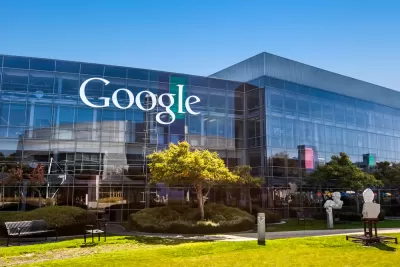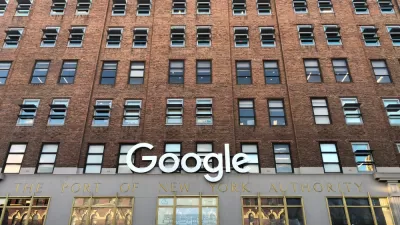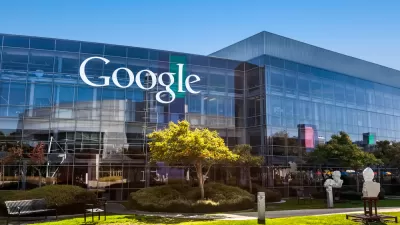Unlike the earlier iteration, today's full-amenity tech campuses provide their well-paid engineers with Millennial-friendly upper middle class comforts. But is that enough?

In a piece for Architecture Boston, Allison Arieff discusses how modern high-tech office parks differ from Pullman's old company town—and how they're similar. Back then, and perhaps today, "This generosity was less altruistic than strategic: Companies could improve working conditions while deterring workers from activism and unionization. Employees were taken care of but had no autonomy."
Providing table tennis tables for Millennial employees is one thing (we love ourselves some ping-pong), but housing them is another matter. But in places like the Bay Area, it might just make sense. "It is not surprising then, in hot markets that accompany the healthiest economic ecosystems, that housing might be seen as the ultimate amenity. It certainly is becoming an obstacle, if not the biggest obstacle, to hiring in these locations."
Old-school company towns were supposed to be blue collar utopias. But today's version serves a more stratified demographic. "These 'new towns' are more New Urbanist than Manhattan-ish. [...] Company Town 2.0 is a walkable, amenity-rich offering for highly paid knowledge workers that has emerged as an indispensable tool for hiring the better engineer."
The word "campus" is very apt. Arieff writes, "the emerging model may be less company town and more postcollege campus, as exemplified by the new 'community-driven living concept' developed by the co-working start-up WeWork. It's called 'WeLive.'"
FULL STORY: Company town 2.0

Coming Soon to Ohio: The Largest Agrivoltaic Farm in the US
The ambitious 6,000-acre project will combine an 800-watt solar farm with crop and livestock production.

Pennsylvania Mall Conversion Bill Passes House
If passed, the bill would promote the adaptive reuse of defunct commercial buildings.

U.S. Supreme Court: California's Impact Fees May Violate Takings Clause
A California property owner took El Dorado County to state court after paying a traffic impact fee he felt was exorbitant. He lost in trial court, appellate court, and the California Supreme Court denied review. Then the U.S. Supreme Court acted.

Colorado Bill Would Tie Transportation Funding to TOD
The proposed law would require cities to meet certain housing targets near transit or risk losing access to a key state highway fund.

Dallas Surburb Bans New Airbnbs
Plano’s city council banned all new permits for short-term rentals as concerns about their impacts on housing costs grow.

Divvy Introduces E-Bike Charging Docks
New, circular docks let e-bikes charge at stations, eliminating the need for frequent battery swaps.
City of Costa Mesa
Licking County
Barrett Planning Group LLC
HUD's Office of Policy Development and Research
Mpact Transit + Community
HUD's Office of Policy Development and Research
Tufts University, Department of Urban and Environmental Policy & Planning
City of Universal City TX
ULI Northwest Arkansas
Urban Design for Planners 1: Software Tools
This six-course series explores essential urban design concepts using open source software and equips planners with the tools they need to participate fully in the urban design process.
Planning for Universal Design
Learn the tools for implementing Universal Design in planning regulations.


























